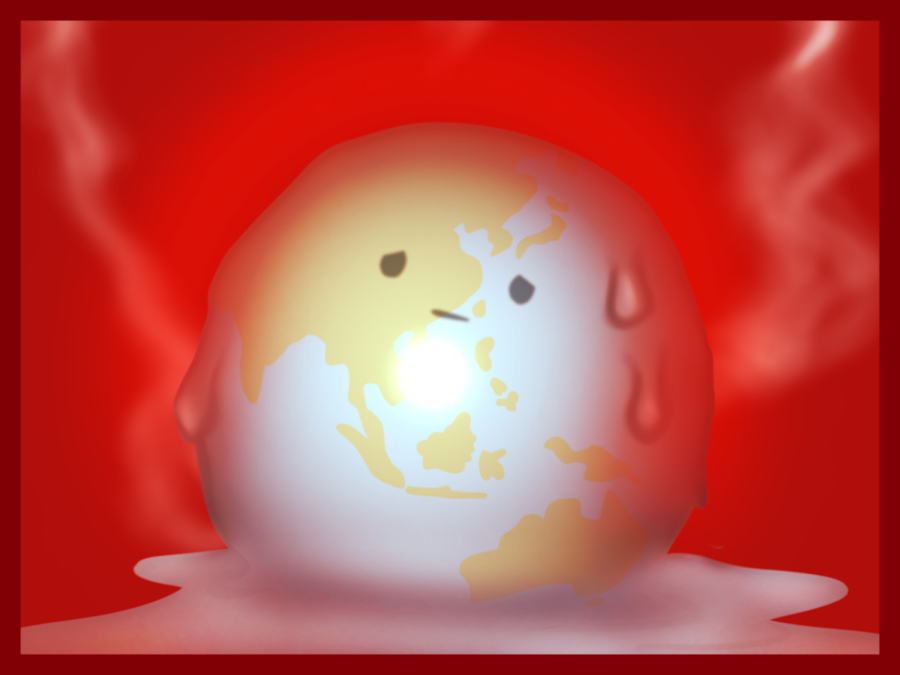Climate Change is a Feminist Issue
November 9, 2022
Climate change is everyone’s issue. This is demonstrable in the oncoming wetter-than-average summer, and the effects this is bound to have on climate patterns. Automatically, I think about the awful floods that have devastated the communities along our Hawkesbury River. They can’t seem to catch a break. And if you can remember, just before that, the same group of people were at the mercy of the 2019 drought and bushfires. I can almost guarantee that you know people impacted by the recent floods and fires before that. And all of this comes back to the human issue of climate change.
But would you be shocked if I said that climate change is also a pressing feminist issue?
Every model in the 2021 IPCC report warns us that climate change, due to human-related greenhouse gas emissions, is accelerating global warming. It impacts us all, and it is worsening faster than we had anticipated. However, something that I have uncovered about the climate crisis, is that its impacts are not gender non-discriminatory.
Women and girls across the globe experience the greatest impacts of climate change, as it amplifies existing gender inequalities and poses unique threats to our livelihoods, our health, and our safety.
Did you know that exposure, inhalation, and ingestion of smoke released from bushfires effects pregnant women the most? They are at risk of higher rates of maternal and infant mortality. Due to inadequate access to reproductive health services due to flooding and fires, increased rates of obstetric complications, birth defects, weaker babies, and malnutrition are occurring here in Australia. Research also indicates that extreme heat increases incident rates of stillbirth.
If this wasn’t bad enough- when catastrophic natural disasters do strike, women are less likely to survive and more likely to be injured due to: less access to information, less access to transportation, being excluded from decision-making, and not being provided as much access to resources and training.
It is not a surprise to hear that women flee a disaster zone- like the Boxing Day Tsunamis- more slowly than others as some are also caring for vulnerable children. In any natural disaster, men survive women 3 to 1. That is… wow… let me repeat that… men survive women three to one. Then in the aftermath, women and girls are less able to access relief and assistance, further threatening recovery, and creating a vicious cycle of vulnerability to future disasters. UN figures also indicate that 80% of people displaced by climate change are women.
Across the globe, women depend more on natural resources, yet have less access to them. Female farmers currently account for 45-80 percent of all food production in developing countries, depending on the region. We now know that the impacts of climate change are felt more strongly by women than men, right?! So, you would assume that this part of our population who have been impacted the most would have a significant seat at the climate crisis table…
Wrong!
Women are often excluded from decision-making on the use of land and resources critical to their own livelihoods.
Simons and K. Humphrey (2021) argue “It is a cruel truth that not only are women most affected by changes in the climate, but they are also substantially less likely to have a seat at the table and be involved in the decisions on land use, natural resource management [and] climate policy.”
But there is hope, the UN’s Sustainable Development Goal No.5 strives to “achieve gender equality and empower all women and girls”. Women often have a strong body of knowledge and expertise that can be utilised in climate change mitigation, disaster reduction, and adaptation strategies. Whilst the UN has highlighted the need for gender-sensitive responses to the impacts of climate change, the percentage of women in national and global climate negotiating bodies is less than 30%.
This can change. It should! Gender inequality coupled with the climate crisis is one of the greatest challenges of our time. It poses threats to livelihoods, health, safety, and security for women and girls around the world.
Women are half the world; it is important that they are included in all major decisions. An equitable future for women means a liveable future for all of us. So, if you are still on the fence about the severity of the climate crisis, just keep in mind that this goes way beyond just our environment. And hey, why just be an environmentalist when you can be a feminist as well?













